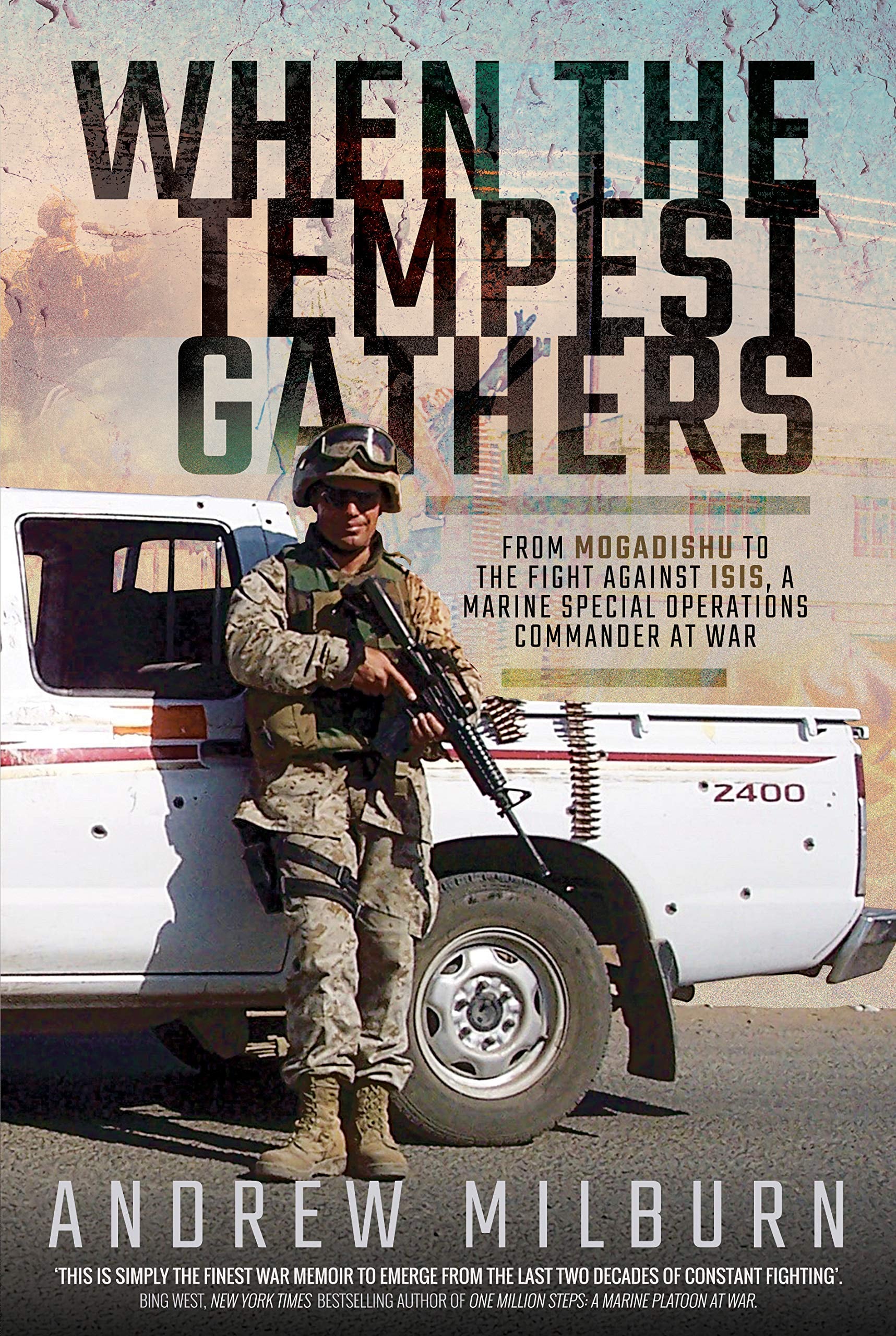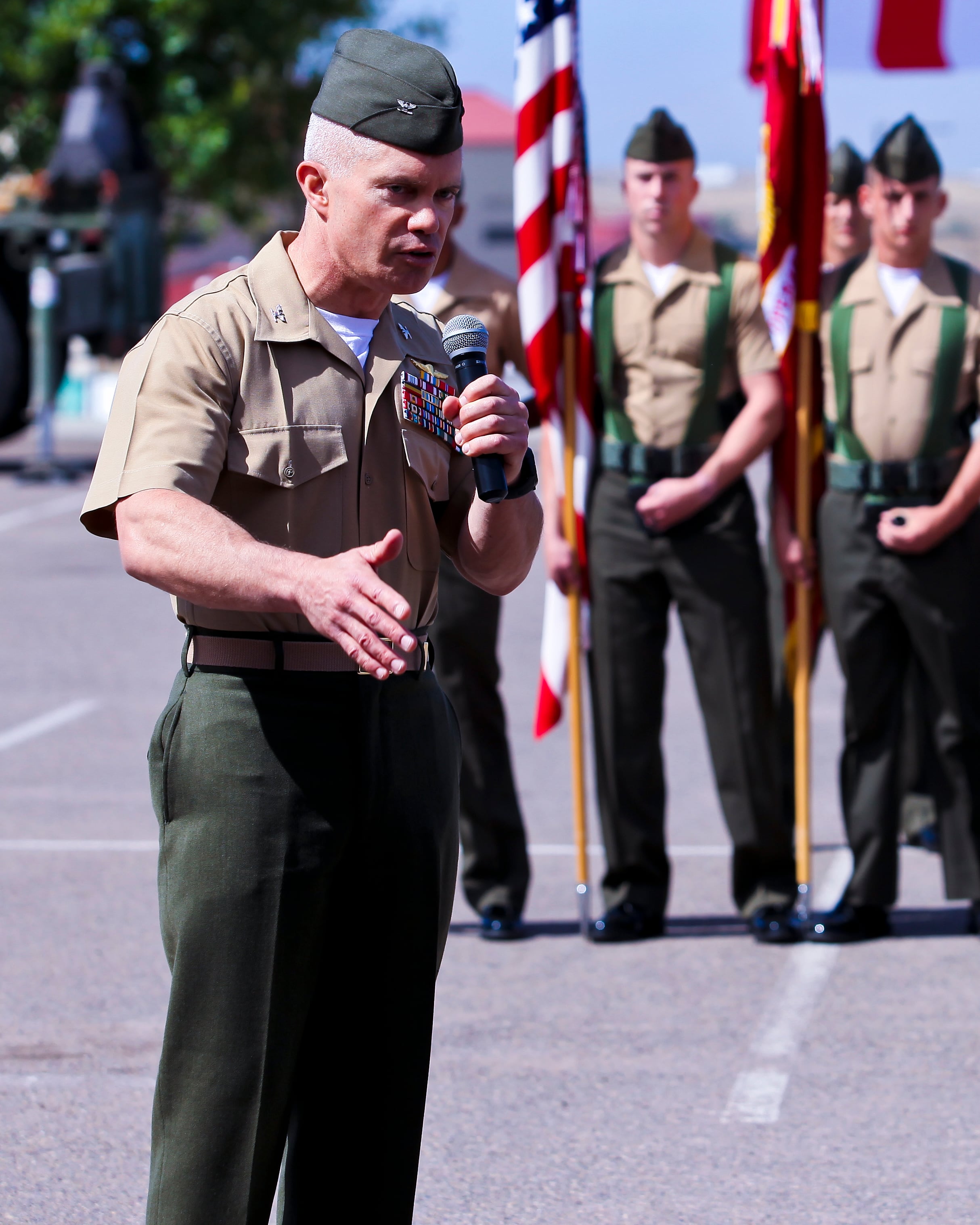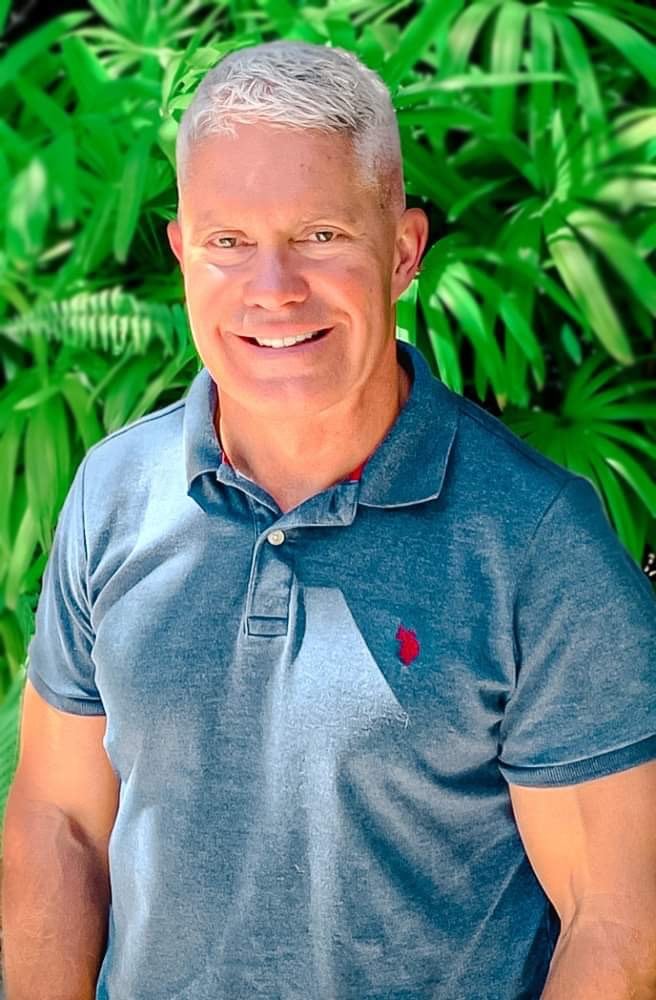In 1987, Andrew Milburn was on his way from London to Australia to meet up with his then-girlfriend when a detour through Iran and a stop at the U.S. Embassy in Islamabad, Pakistan, linked him up with three Marine security guards.
Milburn was born in Hong Kong, the son of a British father and American mother who sent him to boarding school in England, where he later studied philosophy and law in college. Milburn always had envisioned the law as his future.
But, then he met those three Marines.
"They regaled me with stories of travel and adventure,” Milburn wrote in his recent memoir. After a party at the “Marine House,” he was sold. Why not take a “four-year sabbatical” to see the world before settling down?

The planned four-year break turned into a 31-year career that saw Milburn serve in Somalia, Colombia, Ethiopia, Liberia, Iraq, Libya and Afghanistan.
Milburn would rise from private to colonel, play a key role major battles and ultimately command Marine Special Operations Regiment from December 2012 to June 2015 before taking over the Combined Joint Special Operations Task Force-Iraq until July 2016.
Highlights of that three-decade career that saw firefights on the streets of Mogadishu, Somalia, to battles for Fallujah and Mosul in Iraq, and various hot spots are part of his new book, “When the Tempest Gathers: From Mogadishu to the Fight Against ISIS, a Marine Special Operations Commander at War.”
Editor’s Note: The below question and answer section has been edited for clarity.
Q: Why did you decide to write this book?
A: The book was really kind of a catharsis for me.
When I got back from the 2016 deployment to Iraq I had suppressed a lot of angst, most of it tracing to the loss of my eldest child, Kaela, before the deployment. I was very restless, distracted. Certainly, suffering from the aftereffects of combat stress.
My initial motive was to put something on paper for my children to read later in life. I wanted them to understand why I was gone for so much of their childhoods. I started an hour a day and I didn’t have to think about anything else. It was all absorbing. Then, six months later, I had 130,000 words so I went back to edit it.
A friend and mentor, Marine veteran and notable author Bing West recommended I find a publisher.
Q: What do you hope readers, specifically Marine enlisted and officers, might gain from your book?
A: This book wasn’t intended to teach people specific things. It’s intended to be entertaining in a serious way. But because I’ve been honest about mistakes I’ve made along the way I’m not sure you could read the book without learning lessons about leadership.
For Marines it’s always “mission first, men second.” That’s the very fabric of the organization we serve depends on. However, there is an implicit understanding that what we ask Marines to do makes sense. And for officers I think that burden is absolutely a heavy one.
I began my career as a private. The implicit responsibility is that what officers ask their subordinates to do makes sense. That they don’t ask them to do anything dumb. That applies all the way up to the four-star level.

Q: You fought militia members in Mogadishu, al-Qaida in Fallujah, Iraq, and ISIS fighters in Mosul. The book chronicles parts of those experiences but also takes time in each to somewhat humanize the adversary. Why was that important for you?
A: It’s very easy to just simply hate the enemy and paint them as a homogeneous, evil organization. But it’s also important to understand your enemy, know his weaknesses and exploit those divisions. That took us a long time to learn in Iraq. We faced adversaries from former Iraqi Army Baathists to dyed in the wool extremists to farmers with no job prospects being paid to plant IEDs.
Also, another reason is if you just keep banging on about hatred of the enemy, it’s easy to see the moral safety net in any unit plummet.
Q: In your book you include several quotations from speeches, books that have inspired you. What memoirs would you recommend?
A: A really, really good one that I recommend is George McDonald Fraser’s “Quartered Safe Out Here: A Harrowing Tale of World War II.” Fraser fought with the British Army against the Japanese in Burma as a scout sniper. It’s the most brilliant memoir that I have read. I urge anyone to pick it up and just read the first chapter. There are so many commonalities with his experience back then and our own.
Another good example is John Masters’ “The Road Past Mandalay” and “Bugles and a Tiger: My Life in the Gurkhas.” They’re about his experience as a young officer with a brigade behind enemy lines, clearing airstrips in the jungle, being resupplied by air and some tough decisions he had to make.
Q: You spent most of your career working in special operations missions with both Marine units and coalitions and task forces. What lessons can be drawn from that counterinsurgency and counterterrorism work for the larger “near-peer” shift that’s been on the forefront in recent years?
A: That focus means it is the country’s priority for the execution of foreign policy. But what it does not mean is taking your eye off the ball against extremist groups. You can’t fight a ‘holding action’ against terrorist groups. And the only means by which we can do that is by using special operations forces.
SOF will give you that latitude but at the same time you have to enable them with the authorities and permissions to do what they need to do. In tangible terms, that means you have to take some risk to go after the mission, give them the latitude to go out with their partners.
What some people don’t understand is that by trying to do that remotely they think they’re cutting down risk. But they’re actually increasing risk because there are tremendous tangible and intangible benefits to having our SOF alongside partners on missions.

Q: You retired recently, what are you doing now besides promoting the book?
A: I’m teaching overseas for the Joint Special Operations University as a contractor. And I love it, it’s just a terrific job. I realized that teaching is one of the aspects of leadership that I enjoyed the most.
I’ve been to Ukraine, Niger, Somalia and Tunisia. I’m training people who will use what they’ve learned in the real world almost immediately.
Todd South has written about crime, courts, government and the military for multiple publications since 2004 and was named a 2014 Pulitzer finalist for a co-written project on witness intimidation. Todd is a Marine veteran of the Iraq War.




